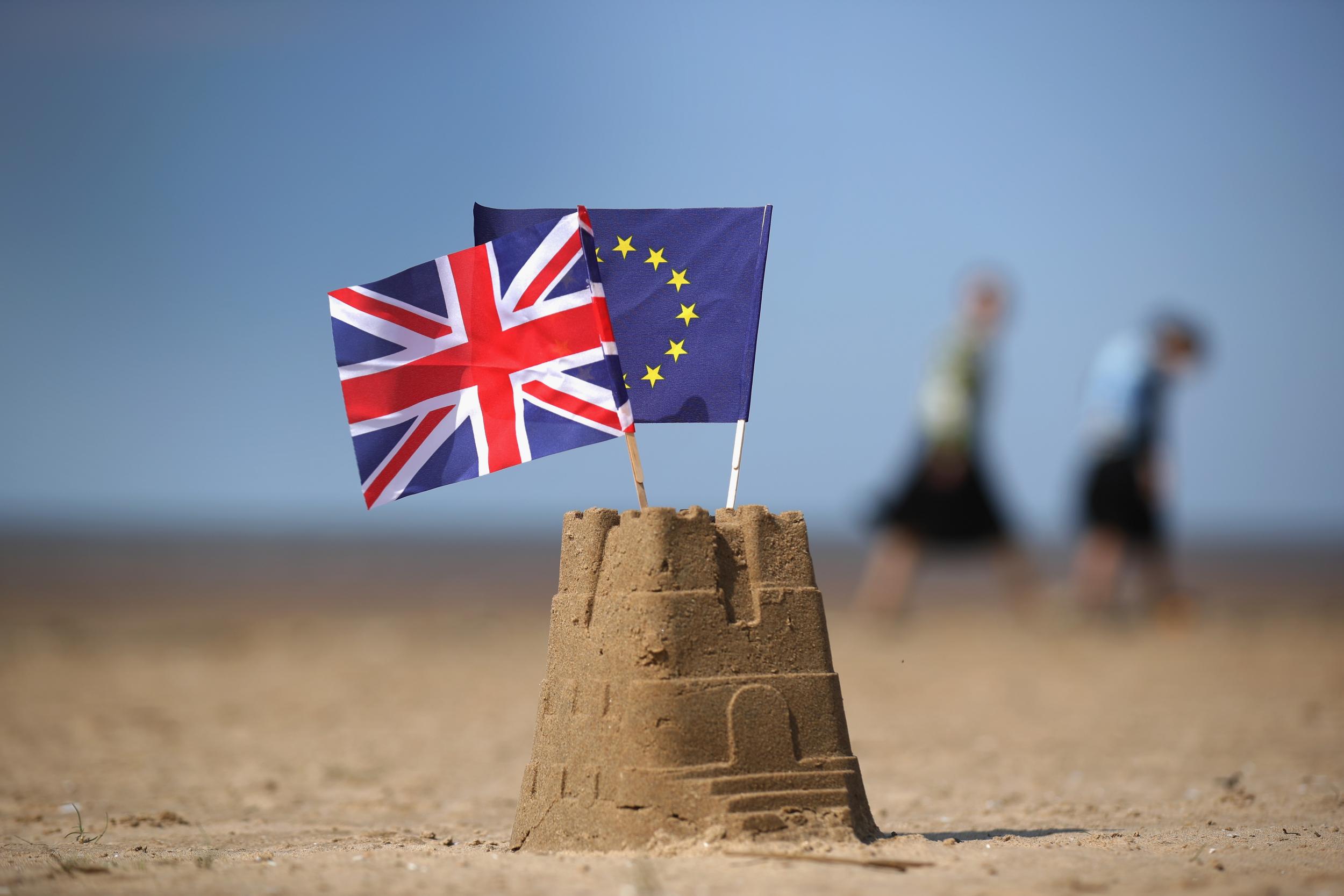British support for the EU up 7% since Brexit referendum
'The looming Brexit seems to have been the best advertisement for the EU,' says Ms Hoffmann

Your support helps us to tell the story
From reproductive rights to climate change to Big Tech, The Independent is on the ground when the story is developing. Whether it's investigating the financials of Elon Musk's pro-Trump PAC or producing our latest documentary, 'The A Word', which shines a light on the American women fighting for reproductive rights, we know how important it is to parse out the facts from the messaging.
At such a critical moment in US history, we need reporters on the ground. Your donation allows us to keep sending journalists to speak to both sides of the story.
The Independent is trusted by Americans across the entire political spectrum. And unlike many other quality news outlets, we choose not to lock Americans out of our reporting and analysis with paywalls. We believe quality journalism should be available to everyone, paid for by those who can afford it.
Your support makes all the difference.Support for the European Union in Britain has risen considerably since the EU referendum, a study has revealed, prompting suggestions that if another referendum were held now the Remain camp would win.
The survey, conducted by the Bertelsmann Foundation, shows approval of EU membership among Britons increased by seven per cent in the five months up to August, while popularity for the Union across Europe has risen by five per cent.
It found that while less than half (49 per cent) of British people were in favour of the bloc in March, 56 per cent of British people expressed approval of the Union when asked two months after the Brexit vote, indicating that many people changed their minds about the EU following the referendum.
The survey, which had a sample of 14,936 respondents from the six largest member states, Germany, France, the UK, Italy, Spain and Poland, was conducted just months after the UK referendum on 23 June, in which 52 per cent of voters opted to leave while 48 per cent supported remain.
Meanwhile the study found that approval ratings across the EU rose from 57 per cent to 62 per cent between March 2016 and August 2016, prompting suggestions the Brexit vote caused people across the continent to “recognise the advantages of a united Europe”.
Other European countries followed a similar pattern, with Germany’s approval ratings having risen from 61 per cent to 69 per cent, and Poland – where EU popularity is highest – increasing by nine percentage points to 77 per cent.
Only Spain bucked the trend, with approval ratings falling from 71 per cent to 69 per cent, although the country still represents the third highest approval rating among the countries included in the survey.
As popularity for the EU rose, negative opinions for the Union fell across Europe, with just over a quarter of Europeans (26 per cent) feeling that their respective countries should leave.
In light of the findings, Aart De Geus, chairman and CEO of the Bertelsmann Stiftung Foundation, suggested Brexit had succeeded where many Eu politicians had failed - by improving the Union's popularity. She said: “The looming Brexit seems to have been the best advertisement for the EU.
"Unfortunately many Britons are only now coming to recognize the advantages of a united Europe. Now both sides must agree on clear rules for the future, because there won't be an 'à la carte' Europe.”
The findings come amid ongoing uncertainty over what form Brexit will take, with Theresa May’s government yet to clarify their plan on whether the UK should remain in the single market of customs union.
The Prime Minister risked angering Tory Brexiteers on Monday after signalling the UK could stay in the European Union beyond 2019 as part of a ‘transitional deal’ that might not see it fully depart until years later, telling business leaders she wanted to avoid a "cliff edge" that would see the country suddenly drop out of the bloc.
Asked later if this meant Ms May was considering a transitional deal, a Downing Street spokesman confirmed that a "range of issues" were being explored by officials and then failed to rule out that it could mean the country remaining in the Union after 2019.
Ms May has previously said she will invoke Article 50 of the Lisbon Treaty in March 2017, triggering Brexit talks, which according to EU rules should be completed in two years.
Join our commenting forum
Join thought-provoking conversations, follow other Independent readers and see their replies
Comments